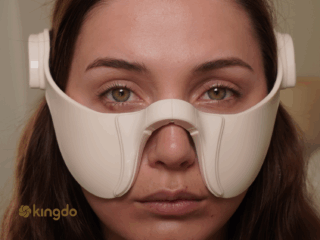
Booking your first hearing test can be a bit daunting. Whether you’ve noticed some difficulty hearing or it’s just time for a check-up, it’s important to feel confident about where you’re going and what to expect. To help you prepare, here are some key questions to ask before you book your first hearing test. These will ensure you find a hearing practice that suits your needs and makes you feel comfortable every step of the way.
- What Does the Hearing Test Involve?
Understanding what will happen during your appointment can help ease any nerves. Ask the practice to explain the types of tests they perform and how long the appointment usually lasts. A thorough hearing test often includes checking different sound frequencies, speech understanding, and how your hearing affects everyday situations. It’s important to know that the process won’t be rushed.
- Who Will Conduct the Test?
Find out who will be performing your hearing assessment. Is it a qualified audiologist or a hearing aid dispenser? Audiologists have more extensive training in diagnosing and managing hearing loss, so knowing who you’re seeing helps set expectations for the level of care you’ll receive. The team over at VIP Hearing Solutions will inform you of everything you need to know.
- Are There Any Costs Involved?
Hearing tests can sometimes be free, especially on the NHS, but private clinics may charge a fee. Ask upfront about the cost of the hearing test, and whether this fee is deducted if you proceed with hearing aids or other treatments. Also, check if any follow-up appointments or additional tests come with extra charges.
- What Happens After the Test?
Knowing what comes next is important. Will the audiologist discuss the results with you immediately? If hearing loss is detected, will they explain treatment options or hearing aid choices during the same visit, or will you need to book another appointment? Clear communication about next steps can help you plan and feel more in control.
- Do You Offer Hearing Aids or Other Devices?
If you might need hearing aids, it’s worth asking what options the practice offers. Do they carry a variety of brands and styles? Are they able to fit and adjust the devices on-site? Knowing this in advance can save you time and ensure you get personalised care if you need hearing assistance.
- What Aftercare and Support Do You Provide?
Hearing care doesn’t stop after the test or even after you get hearing aids. Good practices offer ongoing support, including device adjustments, repairs, and regular check-ups. Ask about the availability and cost of aftercare services to avoid surprises later.
- How Do You Protect My Privacy and Personal Information?
It’s important that your personal and health information is handled securely. Ask the clinic about their privacy policies and how your data will be stored and used. Reputable practices follow strict guidelines to protect your confidentiality.
- How Accessible Is the Clinic?
Consider practicalities like location, parking, and accessibility if you have mobility needs. You might want to know if the clinic is easy to get to by public transport or if they have facilities that make your visit more comfortable.
- Can I Read Analysis or Speak to Other Patients?
Finally, don’t hesitate to ask if they can provide testimonials or references.
Reading online reviews or hearing about others’ experiences can give you peace of mind that you’re choosing a reliable and caring hearing practice.
What to Pay Attention to During a Hearing Aid Free Trial
Are you getting hearing aids as a result of your appointment? Some companies are generous and offer free trials with their hearing aids. This is definitely a policy that you want to take advantage of. It ensures that you’re going to be happy with your investment and you’ve made the right decision. Here are some features that you should pay attention to during this free trial.
The Sound Quality
Let’s not forget the primary objective of hearing aids. To improve sound and what you can hear. Indeed, this free trial is an opportunity to try them out in different environments and see whether you feel like they’re making a difference. You want to ensure that they’re not muffled or creating distortions.
The Comfort
Of course, hearing aids can sound great, but they take some time to get used to. It’s normal for you to be hyperaware of wearing them at first and they could be slightly uncomfortable when you wear them for hours on end to begin with. However, you should notice that this comfort improves over time and once you get used to wearing them. Take a note of how you feel. If you don’t feel like the comfort is improving, this could mean that the design isn’t for you or that they aren’t the right size and fit for your ears.
The Ease of Use
It’s crucial that you know how to use your hearing aids, as well as take them in and out of your ears. During the free trial, you want to get used to how they operate and whether you like using them. If you feel like they’re tricky or you don’t understand features they have, consider whether you want to learn or try another design. For example, some people love the idea of invisible hearing aids. But, they discover they’re too small and awkward to handle.
Conclusion
Booking your first hearing test is an important step towards better hearing and improved quality of life. Asking these questions beforehand helps you find a hearing practice that’s trustworthy, supportive, and tailored to your needs. Remember, the right clinic will be happy to answer your questions and make sure you feel confident from your very first appointment.













